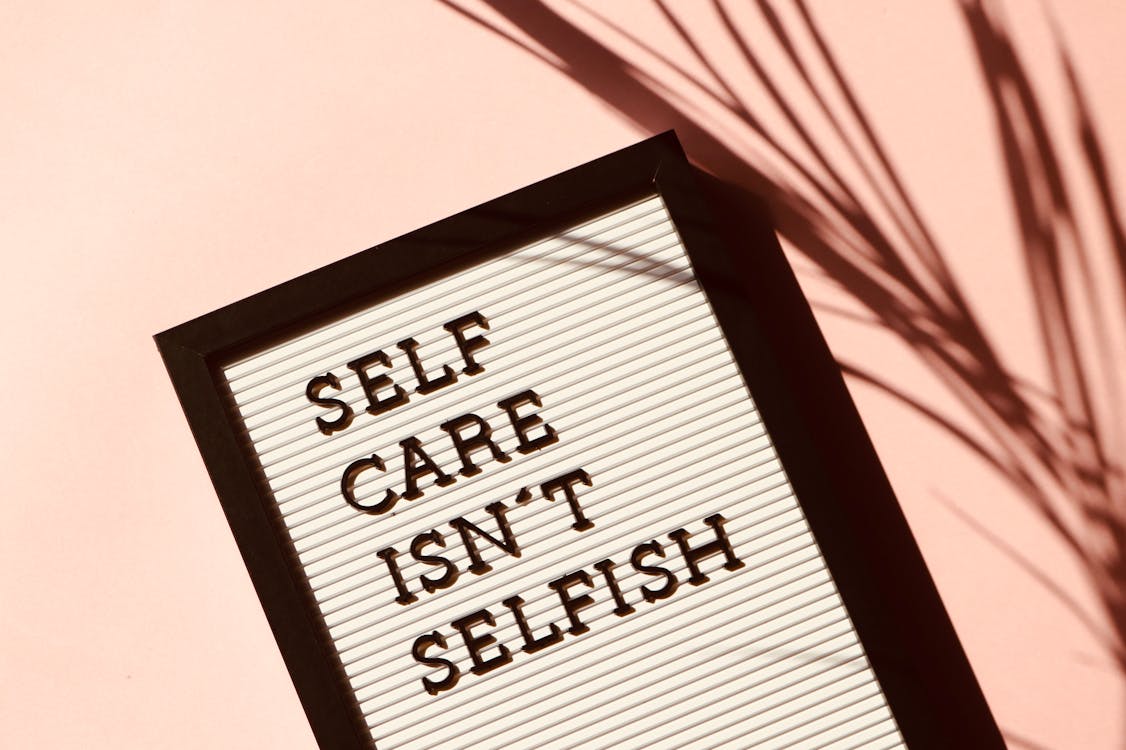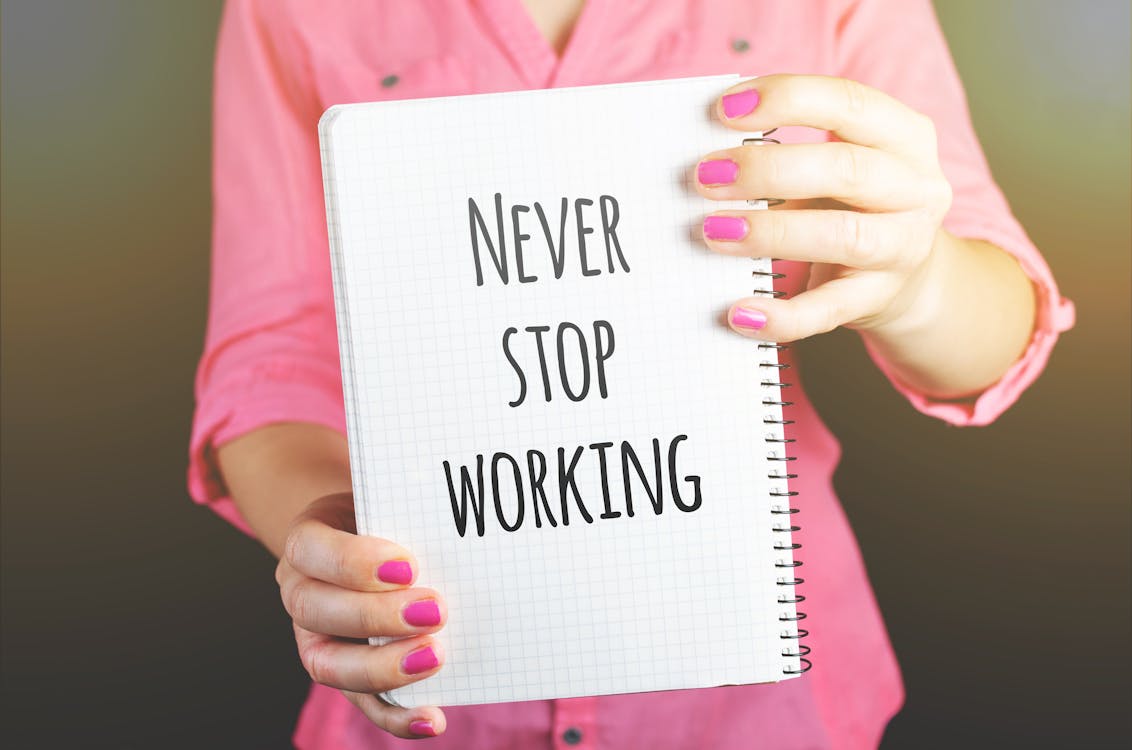30 Things You Can Do To Improve Your Life Today
May 08, 2020
If you’re wondering how you can change your life for the better, I want you to know that this can be achieved by applying simple improvements to your life.
When we’re unhappy about our lives, we tend to think we need to make a drastic change (and sometimes we do!) but being happy is an emotional state and not a prize you get for unlocking some great secret and feeling content forever.
However, in reality, being happy (or happier) is about the attitude we have towards life.
* * *
If happiness is an emotional state, how do you maintain it in the long-term?
You can’t escape having bad days or having bad things happen to you - unfortunately, they are a part of life, too.
But it’s all in the attitude you take towards life!
So if there is a secret to happiness, it is to adopt habits or make changes that improve your well-being and help you maintain a good attitude towards life’s ups and downs.
Positivity and resilience are key - in other words, get back up and keep moving because what happened is already in the past or will soon pass.
* * *
So, what can you do to improve your life?
If you want to be happier and lead a better life, the main areas that you should focus on are:
- Physical and mental health
- Self-motivation and self-development
- Personal relationships
- Financial flexibility.
* * *
Here is a list of 30 things you can start doing today to improve your life in each of those areas:
Physical Health

Your physical well-being has an impact on every other aspect of your life so it should be your first priority.
You need to treat your body well.
That being said, the most important things you should do to improve your well-being are:
1. Eat healthier
Eating healthy is key to avoid disease or health complications, to have more energy and maintaining a healthy weight.
If you haven’t been eating as healthy as you'd like, you’re probably carrying some guilty around, too! Well, you can change that today!
Take a look at everything you have in your pantry and your freezer. Finish everything you have (please don’t throw good food away) but make a note not to buy the unhealthier stuff again.
Reexamine your go-to recipes and see if you can find healthier alternatives - you can probably even find the same recipe with healthier ingredients!
If you'd like to learn more about healthy eating, check out my post about Nutrition and Healthy Eating.
If you haven’t been eating as healthy as you'd like, you’re probably carrying some guilty around, too! Well, you can change that today!
Take a look at everything you have in your pantry and your freezer. Finish everything you have (please don’t throw good food away) but make a note not to buy the unhealthier stuff again.
Reexamine your go-to recipes and see if you can find healthier alternatives - you can probably even find the same recipe with healthier ingredients!
If you'd like to learn more about healthy eating, check out my post about Nutrition and Healthy Eating.
2. Drink water
Water is the healthiest thing you can drink!
On average, we should drink at least 1.5 litres (or 51.8 ounces) of water every day - it helps your kidneys work and it keeps your body hydrated.
Did you know that a lack of hydration can affect your focus, your memory and make you feel tired?
Find out how much water you should drink per day with this calculator!
There are a few apps that help you track how much water you drink every day so if you have a hard time keeping track, try installing one!
You can also buy a smart water bottle that tracks your water intake and you can see it on an app on your phone!
Reducing the consumption of alcohol and sugary drinks is also a good idea - opt for water and save the other drinks for special occasions.
3. Exercise
Leading a sedentary life affects so much more than you think. It’s not only about having less energy or not being able to climb a flight of stairs without getting tired.
Exercising is very important to prevent heart disease, but it also helps your metabolism, your capacity to focus and it even helps you to sleep better!
You don’t even need to spend money on a gym membership or anything like that - you can just go for a run, install an app with exercise routines or search for a yoga class on Youtube!
If you’ve tried to start exercising countless times but always find it hard to commit, read my tips on how you can make sure that you'll finally commit to exercising!
4. Get better sleep
Much like the above factors, sleep is very important for your physical health and getting a good night's sleep can greatly improve your mood.
Nothing beats the feeling of waking up refreshed and ready to face a new day!
We don’t usually think too much of it if we lose sleep because we’ve grown accustomed to making up for it with coffee.
However, sleep deprivation can have serious effects on your mental performance and even on your physical health, affecting your immune system, blood pressure, among other things.
So, start prioritizing your sleep and get your 8-hours a day!
If you have trouble falling asleep, try to wind down for at least half an hour before bedtime, make yourself a cup of calming tea and read a book.
This will ensure that you’re in a calm state and your mind is ready to turn off when it’s time to turn the lights out.
5. Have regular medical check-ups
It’s always a good idea to have regular check-ups to make sure everything is okay with your body.
Don’t avoid doctors because you think they only bring bad news!
If you don’t have any underlying medical conditions and don’t usually have scheduled appointments, you might want to set yearly or semestral blood-work or a full check-up just to stay on top of things.
* * *
Mental Health and Self-Motivation
 After your physical health, your mental health is the most important thing to take care of.
After your physical health, your mental health is the most important thing to take care of.
Even if you’re physically okay, you won’t be able to feel very happy if you’re often feeling low or emotionally unstable.
Here are some things you can work on:
6. Learn emotional self-control
Emotional self-control means being able to manage negative or distressing emotions and remain level headed and push through them.
We need to acknowledge our negative emotions as they are part of our lives and it doesn’t do to just ignore the bad things - we need to deal with them.
However, we need to be able to compartmentalize when the situation requires it - so, for example, being able to stay focused at work even though you might be going through some personal issues.
If you often feel like you have a hard time controlling your emotions in these situations (e.g. if you start crying in front of your boss because he/she gave you some negative feedback), you should learn some strategies to deal with negative emotions and not lose your composure in those moments.
That is because we lose all rationality in those moments and we have difficulty focusing on what’s important, which can cause us to make poor choices.
Ultimately, it will most likely affect your general well-being and happiness.
7. Reduce sources of stress
If something in your life or your lifestyle is putting you under a lot of stress, you really need a change.
Stress is a natural response of the body in situations of danger.
At its root, its meant to help you survive, as it causes your adrenalin to spike which makes you more alert and gives you that fight or flight feeling.
Stress isn’t a good thing when it’s a constant in your life.
High levels of anxiety can really take a toll on your physical and mental health, so you must either learn to manage it if that’s possible or make a change.
Try to find why you are always stressed.
When you’ve pinpointed what it is, use trial-and-error to figure out how to reduce your anxiety.
So if, for example, you’re feeling stressed often because you have a lot on your plate, try to ask for help (either from your family members or hire someone) or try to reduce your workload (reevaluate if you really need to do all those things).
Also, try to schedule everything you have to tackle in your week so you end up with a more balanced plan - you can check out my tips on how to have a more balanced life and download my free weekly planner.
8. Avoid isolation
Even if you’re an introvert or a homebody, everybody gets lonely.
Socializing is important and if you tend to isolate, make sure you’re not drifting away from people because we all need our tribe - they help us cope with the good and bad moments in life.
It’s also very important to share experiences and opinions with other people because it helps us gain a lot of mental flexibility to accept others without judgment and getting out of our own boxed thinking to see things from a different perspective.
9. Practice self-care
We should all do more of this. Self-care is about doing something that helps your physical, mental and emotional health.
We keep running back and forth in our hectic daily lives and we get to the end of the day, only to run to bed without taking the time to take care of ourselves.
So what’s something that makes you feel good and relaxed at the end of a long work day? Maybe it’s taking a warm bubble bath or just sitting down on the sofa with a cup of tea and reading a book...
Whatever it is, try to implement that in your daily life more often!
10. Find hobbies that make you happy
I’ve said it before and I’ll say it again - hobbies are one of the greatest ways to make yourself feel happier.
Doing something enjoyable with your free time is a great way to maintain a healthy mind and to feel happy.
And hobbies can even provide you with useful skills for your life and even your job!
So try to find something you might enjoy and start today!
So try to find something you might enjoy and start today!
11. Get a role model and copy their path to success
If you’re feeling a little lost or not sure what your path might be, a really good way to motivate yourself and to get some ideas on what path to forge is to look at someone that you really admire (whether it’s in your area of work or your dream lifestyle).
Learn about their life and the steps they took to get to where they are today.
You don’t need to know them in person but if you want to get to know them, why not try to reach out and exchange ideas?
Having someone to look up to is a great way to motivate yourself and get you started on your path to success or a better life. Feeling motivated is one of the best ways to feel happier, as you’ll feel imbued with positivity and that drive to learn and to achieve things.
So go and find yourself a role model!
12. Work on your self-esteem and confidence
Healthy levels of self-esteem and confidence can really help you feel more empowered and better equipped to deal with hard situations.
This doesn’t come naturally to everyone (or to most people, actually) but it’s something that can be trained.
Everyone has different skills and abilities so know your own worth - don't compare yourself with someone else.
If you need a little boost, list all the things you’re good at - you can ask your friends and family to tell you one thing they think you are good at or that they come to you for.
Finally, you can always work on things that you feel you can improve - it might help you be more confident!
13. Be more spontaneous
Get out of your comfort zone and be spontaneous every once in a while - try something you normally wouldn’t!
Spontaneity can be an opportunity for a fun break in your normal routine, it makes you a more flexible person and might make you discover something new that you didn’t expect to enjoy!
14. Be more productive + stop procrastinating
Feeling unproductive is probably one of the worst ways in which you can slowly deteriorate your self-confidence and mental health without even realizing it.
This usually takes the form of procrastination (avoiding the things you need to do), which can really snowball and the next thing you know, you’ve really hindered your opportunities and you stop feeling capable of tackling your responsibilities.
It can seriously affect your self-esteem and mental health in the long-run so if you’re finding yourself engaging in the habit of procrastination, please tackle it today!
Maintain healthy relationships

After the basics of your well-being (which is your health), the most important thing to focus on to improve your life and feel happier is to maintain healthy relationships with the people in your life - your friends, family and even coworkers.
Humans are social creatures - our tribe holds us together and we need healthy relationships to stay balanced and happy.
There are a few habits you can implement to make sure you maintain good relationships with your people:
15. Improve your communication skills
The best way to maintain good relationships with people is to have good communication.
Being able to share experiences or worries in your life and to talk about anything that might be bothering you in the relationship is very important.
Open communication can really deepen people’s trust on each other and solidify a relationship, which is why it’s so important.
Knowing you have people who support you and will be there for you when you need them can fill you with a sense of belonging and you’ll have people who push you forward in life and support your choices and achievements.
So work on opening up more and really listening to what the people in your life have to say.
16. Show them you love them
One thing we often do is assume that people know that we value them and that we love them.
So the next time you’re with your family and friends, make sure you make them feel that you love them.
Prioritize them and support them - be there for them and they will be there for you.
17. Check up on your friends and family and get together often
Don’t get so engrossed in your life that a lot of time passes by when you realize you haven’t called or met your closest friend in a month.
Unavailability makes people drift away - loss of intimacy and lack of attention will make any relationship fizz.
So call someone you’ve been meaning to and set a meet-up soon.
Make sure to have meet-ups with your friends and family frequently (e.g. have dinner with them once a month)!
* * *
Career and Finances

The next thing that most impacts your happiness is your finances and your career/job.
If you often worry about money or aren’t content in your line of work or with your job, here are some tips on how to improve your situation and reduce any stress you might be feeling:
18. Save money
Ideally, we should have some money saved up in an emergency fund - it should probably be at least 6 months’ worth of salaries.
That way, if you become unemployed all of a sudden, you have money to last you a decent while if it’s hard to get back on track and find another job.
Also, if for some reason you suddenly have an unexpected expense - e.g. your car breaks down and needs fixing - you are able to deal with that unexpected situation instead of becoming worried about money or having to deal without a car for a while.
You should also have a separate savings account or an investment for your retirement so that, when the time comes for you to retire, you are able to do so and live off of your pension and your savings.
Besides that, you could save up money separately for any plans or goals that you have - e.g. to travel somewhere.
19. Live below your means
Living below your means is the best habit you can adopt to have financial flexibility and more freedom.
If every time you get a raise you’re trying to upgrade your lifestyle, you will never feel like you actually have more money because you’re just increasing your expenses.
Sure, you may feel good about yourself for a while showing off a new car but you’ll always feel tight for money.
This situation will just cause you unnecessary stress and a feeling of restlessness because you’re constantly worrying about the next raise to upgrade and you won’t be able to enjoy the freedom your money can give you by living comfortably but below your means.
20. Invest to get passive income
Besides saving up and putting your money towards your expenses, learning how to invest it in order to create some passive income is one of the best ways to pave the way towards financial freedom and, ultimately, more flexibility and contentment in your life.
You have passive income when your earnings don’t require your active labor (which is the case with your job income).
What happens is that your investment (your money) works for you - e.g. stock market or real-estate investments can create an income for you when you collect dividends or rent.
21. Reduce expenses
If you’ve fallen victim to the lifestyle creep (the tendency to keep trying to upgrade your lifestyle) or if you’d like to have more flexibility to save money or to invest and enjoy your life, you can always pull back on your expenses.
Reexamine your expenses and try to cut them down wherever possible (although it’s probably easier to focus on the more superficial or unnecessary expenses) to increase the amount of money you have left over every month.
22. Ask for a raise
If you’re frustrated with your finances because you think you’re not well-paid, maybe it’s time for you to ask your boss for a raise.
If you do get a raise, you will not only increase your income but also feel more confident and successful, getting a much-needed positive boost.
You can read some tips on how to ask for a raise here.
23. Find a better-paying job
If you don’t get the raise you asked for or you think that it’s just not possible and you’re tired of being underpaid or having no prospects of evolving, you might be better off looking for a job that pays better.
You should consider whether getting a new job/employer will do the trick or if a career change might be the best option.
If you’re in this situation and you’re feeling unhappy about it, a change is probably just what you need.
24. Get a side-hustle
These days, there are so many options to make some extra money on the side (especially online) so this is a really good and simple way to raise your income when your finances are in need of a boost.
This can also be a great way to start a small business of your own on the side to make some extra money and fulfill your dreams!
25. Get a better work-life balance
We have jobs because we need money to live. However, for a while now, it seems that we've been getting that idea mixed up and assuming we must live to work.
While work can be very fulfilling if you enjoy what you do for a living, it can also take its toll when it hinders your ability to enjoy your life and the important things in it. If, like a lot of people, you’re feeling this way, you should probably reflect on how you might be able to achieve a better work-life balance.
Start with why you lack balance - is it your job that requires your availability 24/7? Is it your daily work hours? Is it a long commute?
Whatever it is, try to find a way to adjust that - you could look for another job but you could also talk to your boss about needing more time for yourself and establish clear boundaries; you could also think about moving closer to your work if the commute is taking away your precious free time.
There’s always something we can do to make things better - even if it’s just a small improvement, it’ll feel so good to have earned yourself even an extra half-hour of free time!
26. Don’t pay for things with money you don’t have
Plan for your expenses and use only money you have.
This doesn't mean you can’t get a loan to buy a home.
What it means is you shouldn’t get yourself in debt (namely by using a credit card) to make an expensive and unnecessary purchase that you don’t actually have the money for.
I do want to make this clear, though: credit cards can be useful if their use makes you earn redeemable points or some cash back.
If you use it for that purpose only and you’re paying the amount you used in full at the end of the month, then that’s a great use of credit cards because it benefits you with the points or the cash back and you won’t pay interest.
If that’s not the case, I would only use credit cards if I needed them for online shopping or traveling, since hotels or car rental services may require the clients to pay a deposit and if you don’t have a credit card, you have to pay the deposit in cash.
I don't really like to do this because you’re actually giving them your real money that they have to return whereas you're more protected with a credit card in these situations since you can probably request a chargeback if there are any issues or wrongdoing and they don’t give you back your deposit.
I don't really like to do this because you’re actually giving them your real money that they have to return whereas you're more protected with a credit card in these situations since you can probably request a chargeback if there are any issues or wrongdoing and they don’t give you back your deposit.
However, if you’re using a credit card to buy things with money that you don’t have, this can catch up with you on a bad month and you can find yourself in a difficult situation, having to reach into your savings to pay for what you bought (if you have savings, which I really hope you do!).
So, if you have a credit card and it’s not set to paying 100% of the amount used every month, you can do it now!
Finally, if you don’t actually need your credit card and you’re not getting any benefit from it, I’d say get rid of it, especially if you’re paying yearly fees to have a card that you don’t use!
Personal development
 Last but not least comes personal development.
Last but not least comes personal development.
As rational beings, humans need to keep evolving, learning and experiencing new things to really thrive.
It also really helps maintain our minds sharp, as doing new things forces our brains to think how to approach this new task or situation and eventually adjust to it, whereas doing something for the 300th time becomes more of a physical reflex.
Here are a few things that you can do to work on your personal development:
27. Read self-help books (or articles)
Self-help or self-improvement books are non-fictional works of literature that focus on helping the reader fix a problem they have or learn a skill that can help them in life.
They usually focus on things like personal improvement, giving career or financial advice, teaching people to be healthier and improve their well-being or even their relationships.
So if you’d like to improve any area of your life or develop any skills, why not pick up one of these books and learn some new strategies and skills?
Try to apply what you took away from the book to your own life to improve it!
Here are two books that I read recently and really enjoyed so I can recommend them (they focus on general life advice and stories):
28. Learn new things
Keep learning and stay curious!
I’ve mentioned the importance of always remaining a learner in life.
To put this into practice, try learning or developing your knowledge in languages, learn some new skills, try your hand at different hobbies…
Whatever you decide to do, you will always learn something or get a takeaway and that is the whole point!
29. Travel as much as possible
Traveling is also really important for your personal development.
When you travel, you need to adapt to being in a foreign environment and finding your way around and maybe even trying to speak a different language.
This all helps your brain stay agile by providing you with new experiences and foreign situations to adjust to.
It also makes you gain new perspectives and learn about new cultures, which might make you a more knowledgeable and tolerant person.
30. Improve your cultural and general knowledge
Knowledge is power - something you learn today might help you understand a reference that you come across in the future.
And knowledge isn’t only acquired from books - I’ve learned tons of things from watching TV shows, for example!
It’s true that not all TV shows are super accurate but you’re not exactly trying to become a real doctor by watching a medical TV show, am I right?
So watch TV shows, movies and documentaries or just some TED talks on topics you’re interested in!
I’d also say to try to keep up with the news to be informed with what’s going on around you.
As a member of society, you need to stay informed to be able to vote on elections or to know the issues of the day because they might affect you too and it’s important to know where you stand.
Just always remember to take everything with a grain of salt because people make mistakes and there is quite a lot of incorrect or misleading information out there, especially when it comes to sensationalist news.
Disclaimer: We may earn a commission for purchases or clicks made through links in this post at no increased cost to you. You can read our disclosure here.
* * *
So, are you ready to improve your life?
Pick at least one thing in this list and start working on it today!
Start applying more and more things to your habits or incorporate them into your attitude towards life.
If you need to make time on your schedule for anything new that you’re implementing, you can use the Balanced Life Weekly Planner to help you do that.
Let me know what you decide to focus on and how it’s going!







0 comment(s)